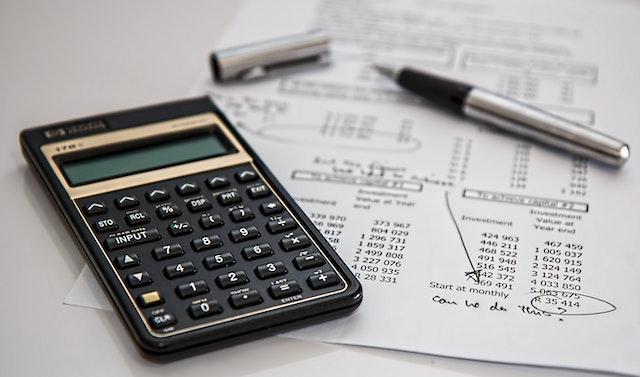How To Manage Your Budget Better

The idea of managing your budget better might not even have occurred to you. Perhaps you feel everything is in hand and your finances are fine. Perhaps you would rather not even think about your budget because you know the opposite is true, and your finances are in bad shape.
What if this wasn’t the case? What if you thought everything was fine, but it actually wasn’t? What if you thought you didn’t have any spare cash, but the reality is that you do? Or what if you were right all along, but by managing your budget better (or creating one in the first place), you can make things better (after all, even a good situation can be improved, and a bad one needs to be)?
With this in mind, it’s worth taking the time to look into how to manage your budget better (or at all). If you can do this, you’ll be surprised at how much more positive your life can be and what you can achieve. Read on to find out more about the first steps to take on this journey.

Track Your Expenses
Whether you have a budget in place or not, the first thing you should do is track your expenses for a while – perhaps two or three months as this will give you a better overview of exactly where your money goes after you get paid.
Once you know what you are paying out each month, you’ll be easily able to identify any areas where it makes sense to cut back so you can save more or spend more on essential items such as food, rent, and clothing. You’ll also know where you’re paying too much for something, which will give you a chance to shop around; you might find more affordable dental insurance this way, but only when you track your expenses and realize you’re paying far too much at the moment.
There are a few ways to keep track of your expenses, and you can try using specially designed apps, creating your own spreadsheet, or using a notepad and pen to write things down if you prefer. It’s not about how you do it but the fact that you do it in the first place that’s important.
Create A Budget
Once you know what you are spending each month, you’ll be in a much better position to create your budget or amend the one you’re currently using. Your budget is really your spending plan. It will include all the details of everything you pay for that’s essential, like most of your living expenses, as well as any savings you want to make and anything you buy that isn’t essential. This all needs to be added up and taken away from your income. In this way, you’ll know whether you’re overspending or cuttings things fine, and you’ll know if you do need to cut back after all. You’ll also have a better idea of how much is left over, meaning that instead of putting your ‘spare money’ into a savings account at the end of the month, you can do it at the start as you’ll know you can afford to. This makes it more likely you’ll do it and not accidentally spend what should have been saved.
If you give these savings a reason for being, such as saving for a house down payment or for a holiday, or to pay off your debts, for example, this will also help you put the money to one side. It might not always be easy, but with goals to work towards, it does become slightly less challenging.
Cut Back On Unnecessary Expenses
We have mentioned that this is important, but once you have your budget mapped out and you know precisely how much you’re spending on unnecessary things, it will be easier to see what you need to cut back on; now is the time to do it.
Consider anything you’re paying for that you’re not making any use of at all. This could be memberships and subscriptions, for example. These are the easiest things to remove from your outgoings. Ideally, whatever money you would have spent on these things, no matter how small the amount might be, can go towards the savings goals mentioned above.
As well as this, look at what else you’re buying during the month. Are you spending a lot on meals out or takeout food, for example? Do you buy a lot of clothes that you don’t wear? Books you don’t read? We all like to spend money, and retail therapy can be fun, but too much of it will be detrimental to your budget and potentially leave you without money left for essential things (which must always be a priority).
If you know you spend too much on unnecessary items, try cutting back slowly at first. It will be easier and more effective to do this than to stop entirely. If you spend a lot on fast food, for example, try to halve how much you spend to begin with. If you go out shopping for clothes once a week, go once a month instead (and have a budget to stick to).

Review Your Budget Regularly
Once you have a budget in place, you might think you’ve done all the hard work you need to do, and you can now go on and spend what you have to and save where you can – and of course, have some fun with your money as well (as much as it’s good to be careful, this is very important – you have to enjoy your life for complete happiness).
However, the truth is that the work on your budget and your overall finances never really ends. You’ll need to review your budget on a regular basis to ensure that nothing has changed and that you are still able to meet all your responsibilities.
If your income changes because you got a new job, lost a job, started a side hustle, gained an inheritance, had to pay a fine, paid off your debts, or for any other reason – it could be anything at all – you need to reassess your finances and amend your budget. Whether you have more or less to spend will depend on what happened and whether your income went up or down, but no matter what, you’ll need to change your budget to reflect the difference.
You’ll also need to keep checking your budget if you start to add more payments and subscriptions to your outgoings. Perhaps you buy some new furniture and decide to pay for it monthly, or you decide to pay a larger or smaller amount off a credit card each month. This change needs to be reflected in your budget. It’s easy to think that a little more or less money here and there won’t make a difference, but it really could, and unless you’re aware of where every penny goes, you could get into difficulties.
Use Technology To Your Advantage
We live in a digital world, so it makes sense that there would be digital help available when it comes to your budget. We’ve mentioned using apps to track your spending, and these can be ideal, especially if they alert you when you’re getting close to your spending limit or there is an unexpected bill that has to be covered.
As well as these apps, you can automate your savings so you don’t even have to think about doing it – again, you won’t overspend, and your savings pot will grow and grow, which is great motivation to continue putting money into it.
You can even use online tools that will help you find the best prices online and give you cash back in some cases. Everything will help you budget better and potentially save money at the same time.
[Editor’s note: This article was written by one of our trusted partners.]





